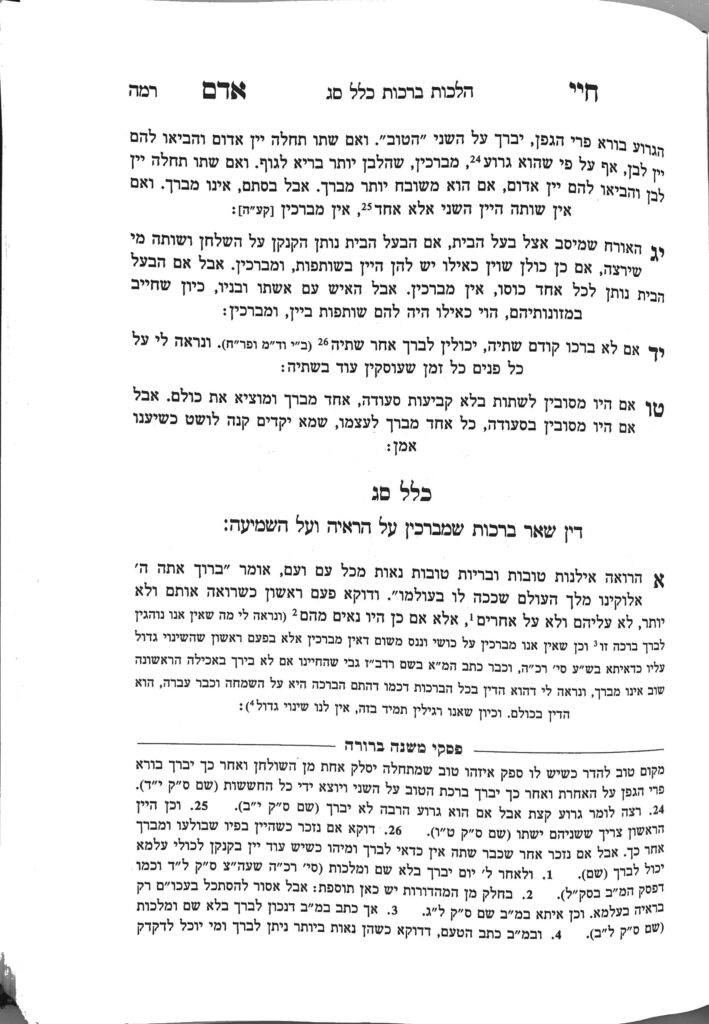We have finished Klal 62 and have a few more points to clarify.
In siman 15, the Chayei Adam wrote that if a group is drinking wine, one person should make the bracha for everyone. If the group is eating as well, every person should make their own bracha, as we are concerned that if people need to answer amen to someone else’s bracha, they may have food or drink in their mouth at that moment and cause themselves to choke.
The Shulchan Aruch discusses this issue in the halachos of borei pri hagafen. Washing for bread used to be a lot more common, so many brachos were exempted through making hamotzi. Borei pri hagafen on wine was one of the few brachos which was regularly recited during a meal. The Shulchan Aruch discusses whether one should recite the bracha for everyone, or whether each person should make their own bracha. The Shulchan Aruch paskens that every individual should make their own bracha, out of the safety concern mentioned above. The Rema disagrees, and writes that the Shulchan Aruch’s concern only applies when one does not announce beforehand that they are about to make a bracha. One should announce they are making a bracha, so that people will stop eating and avoid choking. The Shulchan Aruch was concerned that even with an announcement, not everyone will stop eating, so he paskens that one should always make their own bracha.
The Rema writes that the words of this pre-bracha announcement are savri rabbosai. The Rema explains that it means, “are you interested in being yotzei with this bracha?”. This announcement gives those around the table the opportunity to decide if they want to be yotzei, and, if they do, they have the opportunity to pause and listen.
The Rema adds that since this announcement is the correct way to grab the attention of others when drinking wine during the meal, this nusach should be used in all situations, including situations where others are not eating or drinking. In such a situation, the correct term would be bireshus, which is the proper way to respectfully inform others that you are being motzi them. However, since we use savri when people are eating, we use it in all situations, even when people are not eating. One common example of this distinction is kiddush. Even though people are not eating at the time of the recitation of kiddush, so bireshus would theoretically be proper, we say savri just as we do when people are eating.
The Mishnah Berurah points out that in a situation in which one does not need others’ reshus, one does not need to say savri. Examples include the hagafen said by a bris, a chuppah, and after benching (when benching on a kos). Regarding the end of benching, the Mishnah Beurah points out that one has already asked for reshus when they began leading the benching with the zimun, so that is why they do not need to ask reshus again.
Regarding one person being motzi others, mideoraysa anyone can be yotzei any bracha through the concept of shomeiah k’oneh. However, the Rabanan placed certain limits, such as on benching, where one must recite his own birkas hamazon, and birchos hashachar, where one can only be motzi others when there are 10 present. We will learn more about this concept in the next shiur, be’ezras Hashem.
Summary
- When being motzi others in a bracha, the proper announcement before making a bracha is bireshus. However, when it comes to being motzi others in borei pri hagafen, one should always say savri rabosai.



